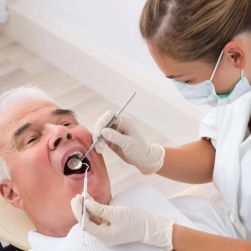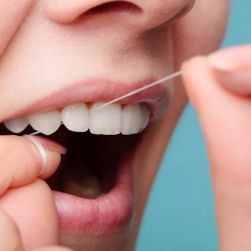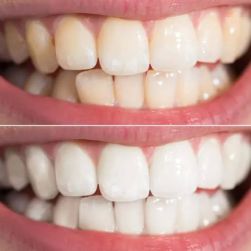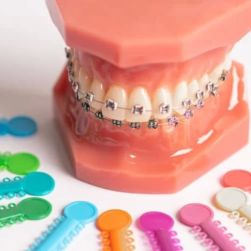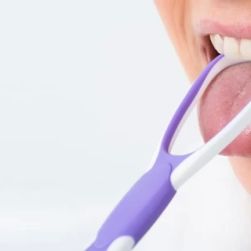When is the Right Time for Your Child's First Dentist Visit?
As a parent, I remember feeling a little overwhelmed with all the things I had to keep track of when my child was young. From vaccinations to doctor’s visits, it felt like there was always something to manage. However, one thing I never overlooked was my child’s dental health. I’ll be honest—I wasn’t always sure about when the right time would be for their first dentist appointment, but after some research and talking with professionals, I discovered that early visits were much more important than I initially thought. If you’re wondering when your child should first visit the dentist, you’re not alone. I’ll walk you through the basics, why early visits matter, and how they can benefit your child’s long-term health.
1. Understanding the Importance of Early Dental Visits
Before I delve into the best age for your child’s first dentist visit, let’s talk about why this is so crucial. Dental care is essential from the moment a baby’s first tooth appears. I didn’t realize this at first, but your child's dental development sets the stage for their overall health. Early dental visits allow your child to establish a relationship with their dentist, helping to alleviate any fear and anxiety about dental care as they grow older. It also helps ensure that any potential problems, like cavities or misaligned teeth, are caught early, which can save both time and money down the road.
Additionally, visiting a dentist early on helps establish a good oral hygiene routine. I noticed that once my child had regular dental visits, they understood the importance of brushing their teeth and taking care of their gums. It also allowed me to get professional advice on how to care for their teeth, which can vary at different stages of their growth.
2. When Should Your Child First Visit the Dentist?
According to the American Academy of Pediatric Dentistry, a child’s first visit to the dentist should occur by their first birthday or within six months after their first tooth erupts. I was surprised to learn this, as I didn’t think it was necessary to go that early. However, after speaking to a pediatric dentist, I learned that the early appointment is essential for setting up a healthy foundation for oral health.
For me, it was reassuring to know that the first visit is generally low-key. During this visit, the dentist will usually just check the child’s teeth, gums, and overall oral development. The main goal is to establish a relationship and teach parents about good oral hygiene practices. For example, I learned some important tips about cleaning my baby’s gums before their teeth came in and how to use a soft-bristled toothbrush when their first teeth did appear.
3. What to Expect at Your Child's First Dentist Visit
I remember feeling a little nervous about what would happen during my child’s first dentist appointment, especially since they were so young. But the first visit is usually brief and non-invasive, and the goal is to make the experience positive and comfortable. For us, the dentist performed a simple examination of my child’s teeth and gums, checking for any early signs of dental issues like tooth decay or misalignment.
During this visit, the dentist will likely give you guidance on how to care for your child’s teeth, including tips on proper brushing techniques and dietary recommendations to support oral health. The dentist may also talk to you about fluoride use, teething, and any habits, like thumb sucking, that could affect your child’s dental development.
For babies and toddlers, the first visit is more about prevention than treatment. The dentist’s goal is to educate parents, establish a dental home for the child, and ensure that they feel comfortable and confident about their oral care routine. It’s a great time to ask questions about any concerns you might have regarding your child’s teeth, gums, or overall dental health.
4. The Benefits of Early Dental Visits for Kids
Looking back, I’m so glad I took my child for an early dental visit. Not only did it set the stage for healthy oral habits, but it also helped prevent potential dental problems. I was surprised to learn that tooth decay can begin as soon as the first teeth erupt. Early dental visits help catch early signs of decay and allow the dentist to recommend steps to prevent cavities, such as fluoride treatments or the use of dental sealants.
Another benefit I found was that the dentist could provide personalized tips based on my child’s unique needs. For example, some children are more prone to cavities, and in these cases, the dentist can recommend specific treatments or strategies for improving oral hygiene. Early visits also allow for an evaluation of how the teeth are developing and whether there are any concerns about alignment that might require attention later, such as the need for braces.
5. Building Good Oral Hygiene Habits from the Start
One of the most significant benefits of early dental visits is helping your child develop good oral hygiene habits. I found that the earlier you start teaching children about dental care, the more likely they are to incorporate these habits into their daily routine. During the first visit, the dentist will often provide guidance on brushing and flossing techniques, even for babies and toddlers who may not yet have full sets of teeth.
I was advised to begin brushing my baby’s gums even before their first teeth appeared. As soon as their first tooth came in, I began using a soft toothbrush to clean their teeth. The dentist also explained how to introduce flossing once they had more teeth, which helped me ensure that my child’s dental hygiene routine was complete. Establishing these habits early on can make a big difference in the long run, helping prevent cavities and other oral health issues as your child grows.
6. When to Schedule Follow-Up Visits
After your child’s first dentist visit, the dentist will likely recommend follow-up visits based on your child’s needs. For children with no dental issues, routine check-ups are generally recommended every six months. These regular visits allow the dentist to monitor your child’s teeth, provide cleanings, and address any concerns early on. I found that having these regular visits helps keep my child’s oral health in check and builds their comfort and trust with the dentist.
If any dental issues arise, such as cavities or misalignment, the dentist may suggest more frequent visits or other treatments. The earlier these problems are identified, the easier it is to address them before they become more severe.
For me, scheduling these regular visits has been an essential part of maintaining my child’s overall health. I know that their teeth are being carefully monitored and that we’re on the right path for healthy oral development. The early visits have laid a strong foundation for my child’s dental future, and I feel confident that they’re on track for a lifetime of healthy smiles.
If you’re unsure about when to take your child to the dentist or need recommendations for pediatric dentists in your area, I highly suggest visiting Dentistry Toothtruth for expert advice and the best dental care for your little one.

